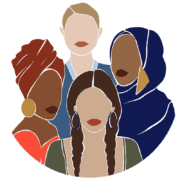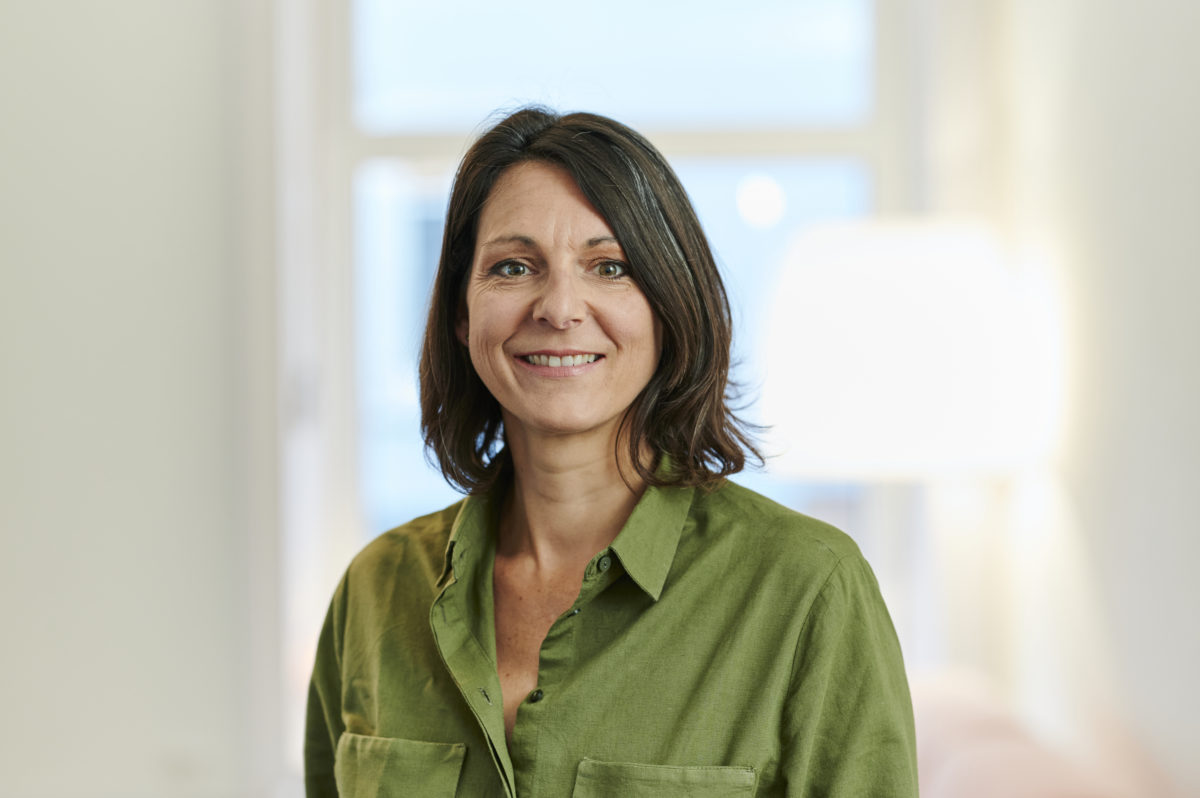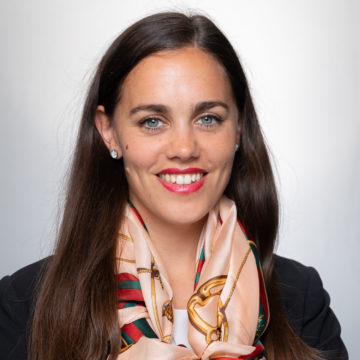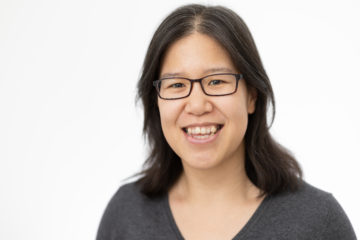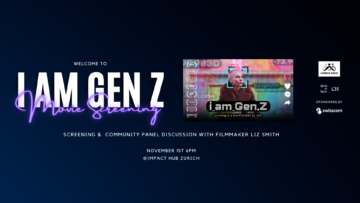Each month we have the honor of interviewing WOMEN WHO INSPIRE US. This month we had the great pleasure to talk with Nadia Fischer, CEO and co-founder of Witty Works and creator of the Diversifier. Witty Works raises awareness of how unconscious bias affects the workplace by supporting their clients with redesigned processes and structures to bypass unconscious bias and ultimately creating a more inclusive work culture.
Tell us a bit about yourself, your background, and how you’ve found your way into tech.
My name is Nadia and I’m the co-founder of Witty Works. Originally, I have studied international relations in Geneva and wanted to become a war journalist. After my studies, I worked for the defense department to disarm the world.
But I soon realized that everything was moving very slowly and I wanted to change to a fast-pacing environment. So I changed to Business Development, where I had different jobs. Around 10 years ago I then moved into tech, and that’s where I really wanted to be because that’s where innovation happens.
I started in tech as a Business Developer, but went more and more into Project Management and finally ended up as a Scrum Product Owner. For me, this was a life discovery, because I felt this is how work should be, where people work self-organized, you don’t have hierarchies, but you decide yourself what’s best for the product and the users.
After that, I started doing more coaching, where I helped companies to digitally transform with the agile mindset. But then I started to worry more and more about the diversity in tech. The teams I was seeing were homogenous and such teams do not take into consideration a huge group of the population. That’s when I decided to do something against it and started Witty Works.
As a private person, I am a mother of two teenagers and happily married. I’ve also traveled and lived in a lot of places (Chile, USA, Burundi), so internationality is a big part of me, too.
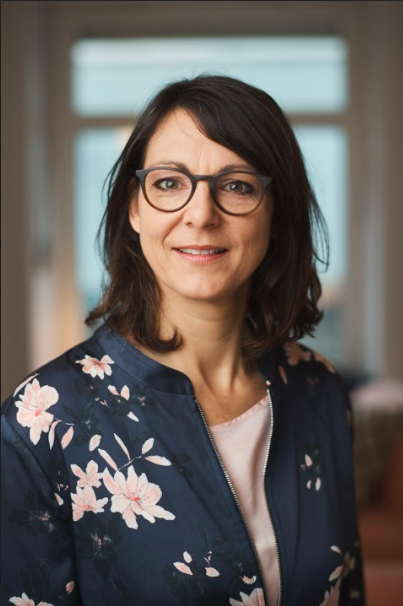
70% of the job ads are still written in a way that attracts male colleagues only.
How did you end up with the idea of Witty Works?
By the time I got worried about diversity in tech, I decided that I wanted to do something about it. Then I met my former co-founder Valérie Vuillerat. We were aligned on the mission that we did not wanted to create something around coaching women to enter tech, but actually work with the companies. I am still convinced that diversity is really a question of the companies. They have to change their culture to be attractive for all sorts of talents.
We did some research on what are he best measures for companies in order to achieve diversity. We found that unconscious bias is one of the main problems. They steer the processes, influence the actions, and are inherited in the structures of a company.
So after some further research and discussions with a lot of companies, we’ve found out that it all starts with how you’re writing your job ads. 70% of the job ads are still written in a way that attracts male colleagues only. That’s when we knew that we wanted to tackle this problem.
In the beginning, we first did this manually by looking at the job ads, but then we started to build a software that detects unconscious biases in the language. That’s when Lukas Kahwe Smith, our third co-founder, joined to build the tool, now called Diversifier. Additionally, we assist companies on how they can bypass their biases and redesign processes and structures.

It was clear from the start that we did not want to create a company to coach women in their careers, but to work with the companies. Diversity and inclusion is their responsibility.
What drives you at work?
What really drives me is that I am convinced that you can change the world with language. Up until now, we’ve learned at school how to use the right grammar and orthography, but nobody has ever talked about what kind of language you have to use to address everybody.
What drives me is that we need to create a new language that addresses everybody and that can create a sense of belonging for everybody, which is not the case nowadays. And I would love to have Witty Works make that mark in world history to say we have to change the language so that everybody belongs to the society and the economy.
A second thing that drives me are my employees. I want to give them a workplace where they feel happy, respected, and fulfilled. And the third thing is definitely getting up for my family, my husband, and my two kids.
What one thing do you believe has been a major factor in your success?
What is part of my personal success is the fact that I don’t like hierarchies at all. I don’t like people who think they are better than others. And that leads me to my own behavior: Whenever I meet someone, I try to see this person as an equal counterpart. I listen to this person and his/her worries at the same eye level and I need to make this human relationship very quickly. Because in the end, we’re all just humans and we all try to do our best.
Another thing is my strong ethical understanding of my life and of what I want to do in my professional life. This is something that I have inherited in my personality from my parents. They both had a unique understanding of the human being, seeing everyone as born equal. This still applies to my life nowadays. I believe that you have to have some ethical rules for yourself in order to move on as a humanity.
What has been your toughest challenge you faced while working in tech? What did you learn from it?
I must say, the good thing for me is that when I started working in tech, I already knew that this is where I want to be. So there was nothing that could push me away from this dream.
But generally, and this was especially during my early career, there have been some challenges. I came out of my studies fully motivated and engaged to start working. But quite early, I started to realize that sometimes you didn’t get that promotion that you’ve wanted. Or another colleague got that position abroad, even though you have asked for it many times before.
And the challenge then was that I always put myself into question. Maybe I am not as good? Maybe I am not performing? And only later I’ve realized that this was the company unconsciously blocking me. So the challenge is not to put yourself too much into question all the time. And I believe that I am not the only one, but a lot of women experience the same.
What valuable advice did you get from your parents or the people closest to you during childhood?
What my parents told me was to be free. They wanted me to choose what I wanted to do and then go after it. They wanted me to feel that I did not have to choose a particular job or study, but that I would choose something because I loved it. Of course, they also tricked me a bit by communicating that I should look for something that got me enough money to have a good life 😉
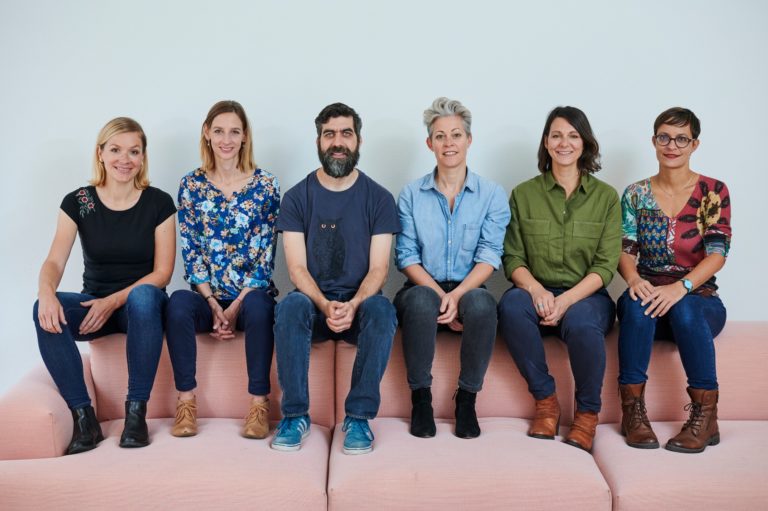
When you’re new to tech, make sure you find yourself a company with a culture that fits you.
Nadia Fischer, Witty Works
Learn more about Witty WorksWhat is your next challenge and what are you hoping to achieve in the future?
Professionally, the next level is definitely to make Witty Works and the Diversifier go international. The particular challenge for me personally is to become the type of CEO that I want to be. Even though we don’t have any hierarchies at Witty Works – we work with a holocratic system – as a co-founder and leadership person, I still want to be a role model for the company.
Anything else you’d like to say to our readers or pass them on their way?
When you’re new to tech and your career, make sure you find yourself a company with a culture that fits you. It’s difficult to find this immediately. You might have to try out a few to find out what is the culture that fits you. But I think this is very important, as I see a lot of women dropping out from IT jobs because they don’t feel that they are fitting to the job. But mostly it’s not due to their job but rather the company culture that does not fit them and does not really care for inclusion.
Another thing I want to encourage everyone is to talk to your male and female colleagues about your salary and the work conditions. It took me until the mid-30s to realize that I wasn’t promoted the way I should or paid the way I should. So start early to talk with your colleagues and make sure that you’re treated fairly.
We would like to thank Nadia for her time and this insightful interview. We wish her the best of luck for her personal future and for Witty Works. Thank you for being a woman who inspires us! 💙
Author: Corinne Ruckstuhl
Our Women Who Inspire Us series has already featured:
- Anastasia Hofmann, co-founder of food-tech start-up Kitro
- Valentina Ricupero, business consultant & coach

